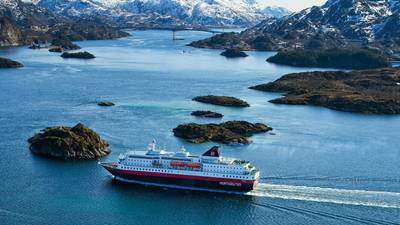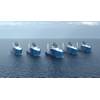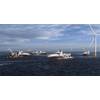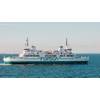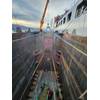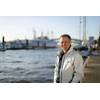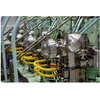1993-built Passenger Vessel Sees 23% CO2 Emission Reduction after Eco-Makeover by Kongsberg
Kongsberg Maritime, a Norwegian maritime equipment and technology specialist, announced a 23% reduction in CO2 emissions on the 121-meter passenger vessel MS Richard With, which is owned by Hurtigruten, a coastal ship operator and adventure travel company.
The vessel finished an extensive refit last summer using Kongsberg Maritime engineering and technology and has now completed its first year back in service.
Last year, Kongsberg Maritime partnered with Myklebust Verft shipyard to convert three Hurtigruten ships to hybrid technology, promising reduced emissions and quieter operations. The MS Richard With, built in 1993, was the first of three ships to be relaunched, in August last year. The second ship, MS Kong Harald returned to service in May, and the final ship, MS Nordlys will be complete in 2025.
The project is one of the largest of its kind in Europe, with an investment value of approximately €100 million, Kongsberg Maritime said.
"We have built our last fossil fuel ship for the Norwegian Coastal Express,” said Hurtigruten Coastal Express CEO Hedda Felin. “We had the opportunity to upgrade the fleet and give the ships the best of today’s technology. Plus, it’s more environmentally friendly to retrofit a vessel than to scrap and build a new one.”
The refit program for MS Richard With included the installation of two hybrid shaft generators, two SaveEnergy 1,120kWh lithium-ion batteries and two Bergen B33:45V engines. It also has new tunnel thruster motors, a retractable azimuth thruster, and controllable pitch propeller blades, plus digital management systems.
“We can do the full turnover of a vessel in four or five months. An entirely new build takes much longer,” said Geir Oscar Løseth, Kongsberg Maritime’s Vice President of Sales Aftermarket Advanced Offerings.
“The vessel is also safer and smoother in the water. It gives the crew several layers of reassurance. They can operate on full battery, zero-emission operation; they can run on auxiliary engines and they can run on main engines. So, there’s a high level of safety that meets the new requirements for lower-emission travel along the coast.”
Ship owners and operators are working to deal with IMO regulations on emissions reduction, particularly for active vessels.
“Our role is going to be to guide customers through this transition, with advisory services as well as the products and solutions that will make sure regulations are met. But we won’t do that simply by coming up with new products and solutions. We also need to look into existing fleets,” said Lisa Edvardsen Haugan, president of Kongsberg Maritime.


